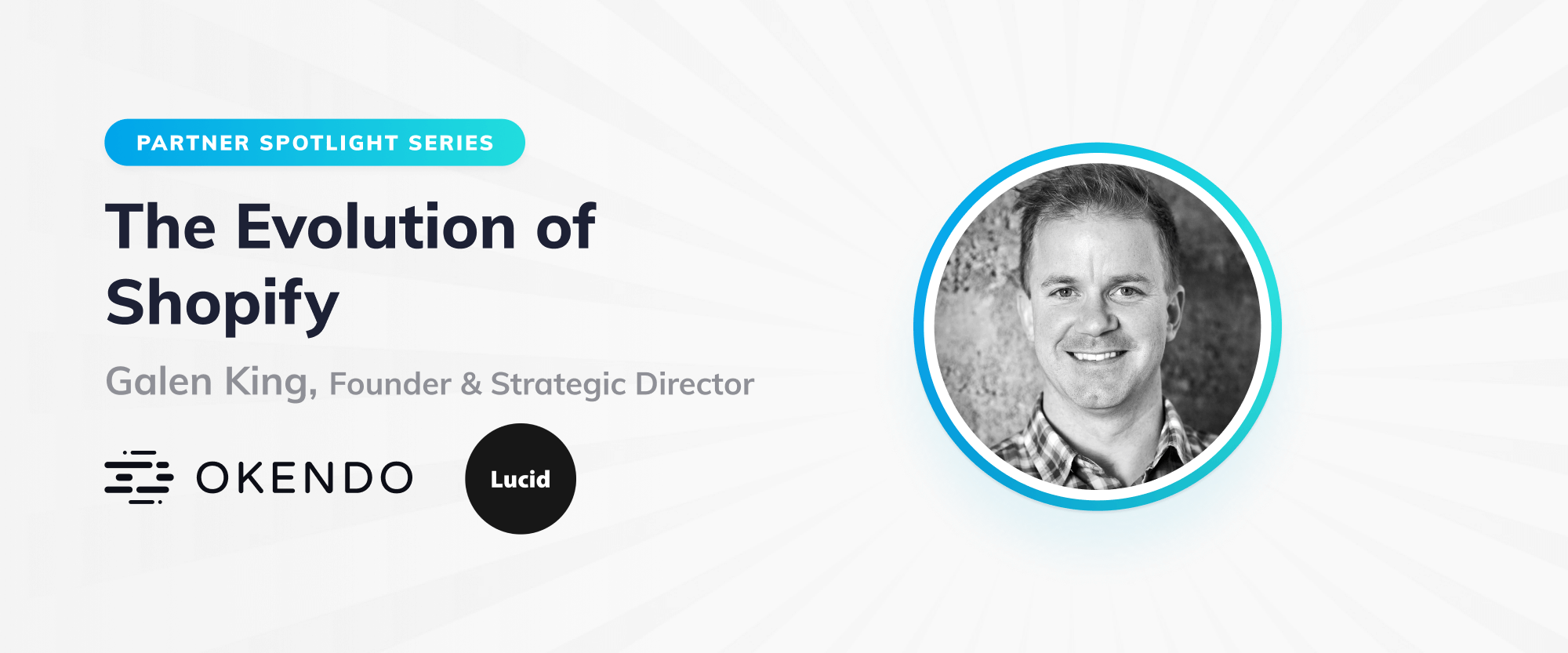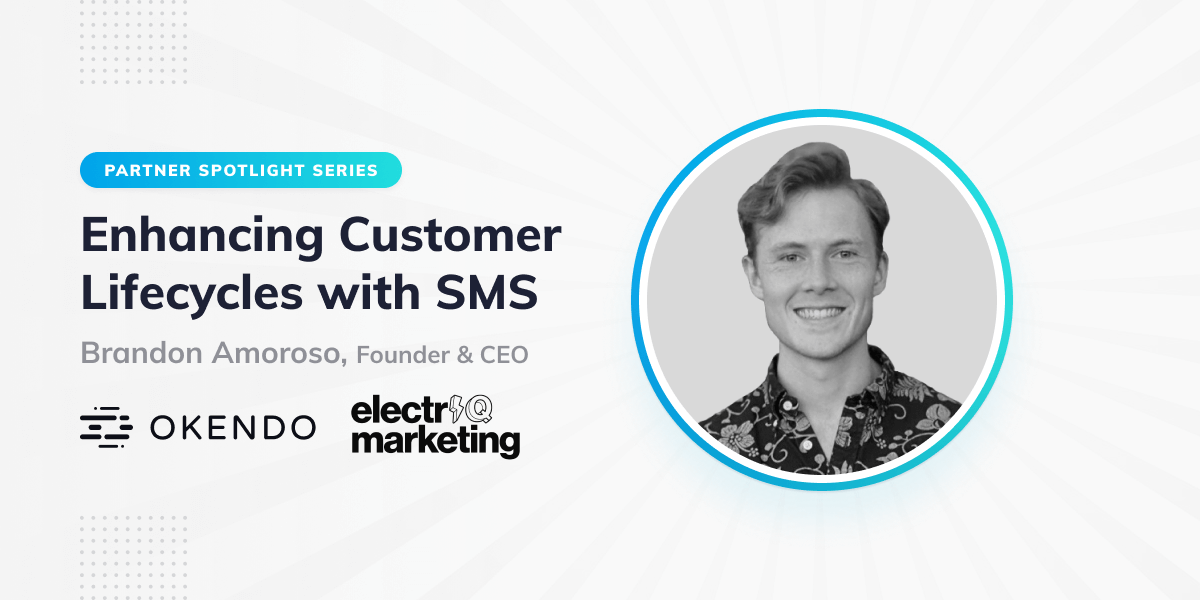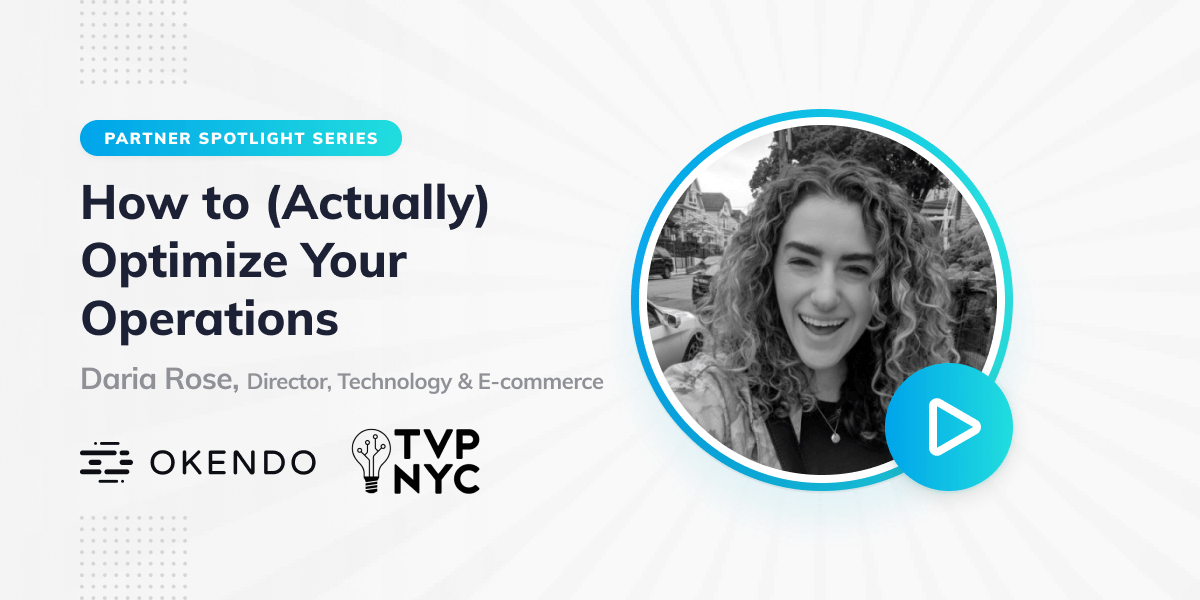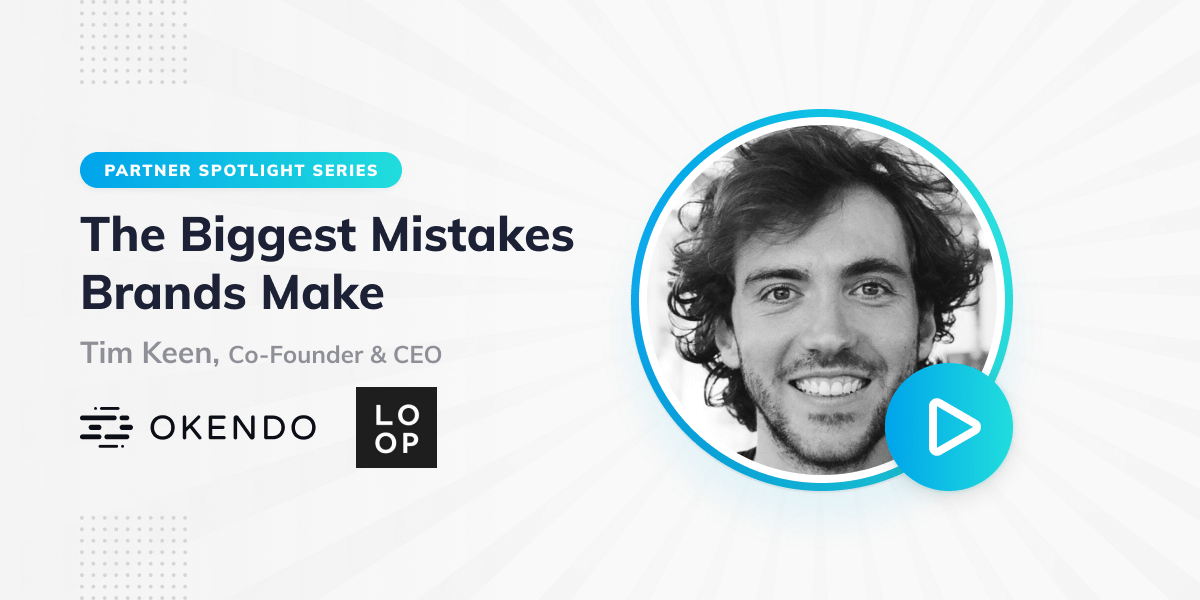Lucid is an elite ecommerce agency based in New York and New Zealand. As one of Shopify’s first official partners, Lucid has witnessed and influenced the Shopify ecosystem’s growth while helping countless merchants hone their brands and dig to the roots of their challenges before delivering thoughtful solutions.
I interviewed Galen King, Founder & Strategic Director at Lucid, to discuss his journey launching one of the first Shopify agencies, developing research-backed strategies for his clients, and how the Shopify/partner agency relationship have evolved over the years.
You founded Lucid during your first year of university. What motivated you to start an ecommerce agency, and how did you find the confidence to do so at such a young age?
Ecommerce didn’t even exist in 2000 when I first started. I needed a job in university but didn’t know what I wanted to do, so I found a web design position, downloaded a demo of Dreamweaver, and started building websites. Total naivety motivated me. If I recall correctly, the company charged clients $750 for a site and paid me $150, so I thought I could make much more money doing it myself.
That moment was the birth of Lucid. I decided not to return to school and devote myself to web development full-time. However, I quickly learned how hard hunting for clients is and making sales. I literally handed out business cards on the street. $150 didn’t seem so bad anymore!
Wow, the price of a website has certainly increased since then!
The ones I was building were only five-page marketing sites. I was mainly doing graphic design; the Internet was so young that flyers and brochures occupied most of my time. Lucid started as a simple web design company, but we started dabbling in Shopify in 2006, having stumbled across it while working on Ruby on Rails projects.
Because you were young, what were some of the most significant challenges you faced getting Lucid off the ground?
I don’t know where to start! Many of the challenges I faced still exist today. Honestly, I wish I had worked at an agency before starting my own. I had a freelancer mentality for such a long time, even after hiring my first team members. I also don’t have a business background — I’m a creative person at heart — so we struggled with sales and marketing. Unfortunately, those things are close to the core of what you do; I focused so much on building a people-first organization that I have struggled at times with the constant need to bring in new work.
That’s good advice. It's essential to have the product to support the sales and marketing, though, and I think Lucid certainly has that.
Thank you. Confidence is also a key to success, which takes time to build when you are starting out. We really cared about our craft in the early days but needed the confidence to sell. It’s essential to strike a balance between not overselling and delivering excellent work — they build off each other, and maintaining that balance is always a challenge.
What did it mean to you when Shopify invited you to be one of the first members of its Partners and Experts programs?
We knew everyone at Shopify back in those days. One of Lucid’s team members went to work for them as their 35th employee ever, I believe. Emails would come from Tobias Lütke himself. We weren’t formally “invited” to be part of those early programs because they came up in regular conversation. At the time, they were a way of consolidating Shopify’s community rather than a collection of 40,000-plus partners. It took us from a group of people building on Shopify’s platform to something industry-transforming with partnerships as the core of its growth marketing program.
What they’ve built is incredible, and it’s an honor to be part of the ecosystem from the very beginning. It’s cool Tobi was the one on the other side of those emails!
On a different note, you’re from New Zealand, so what motivated you to move to New York?
My family came for what was supposed to be one year, five years ago. My wife and I wanted our kids to have an overseas adventure. We dropped ourselves in Manhattan without a plan, only knowing that I wanted to continue running Lucid remotely.
However, I underestimated how difficult the time zone difference would be, so I “accidentally” hired someone in New York, and that snowballed into a team. We haven’t formally announced it, but Lucid is now officially headquartered in New York with a team in New Zealand. We’ve come a long way.
Shopify has changed a lot over the years. How much would you say agencies like Lucid have had to adapt to Shopify as it evolves? Conversely, how have agencies influenced Shopify? How would you describe their give-and-take relationship?
I’ve certainly witnessed its evolution. Early on, we were all a tight-knit group of freelancers who became experts in this new ecosystem. Many businesses like mine were invested in making the Shopify platform their whole area of expertise. We’re loyal to it because Shopify has been good to us; they’ve built a community and fostered camaraderie amongst us “OG experts.”
I’ve had lots of conversations with other agency founders over the years and, even though we’re technically competitors, it doesn’t feel that way because we’ve never really competed head-on. There’s plenty of work, so we’re candid with one another and share challenges, stories, tips, and support.
This closeness is thanks to the community Dan Eveleigh created with the partnership program. Shopify and agencies have had a sort of symbiotic relationship since the beginning — we adapt to the platform’s new features, but they’ve never thrown us for a loop, and they always have worked hard to make room for us as their partners.
Nowadays, more Shopify partners do tactical and implementation work, but Lucid has been moving toward more strategic, expert direction and guidance. We strive to hone our expertise and leverage the fact that we have some of the most experienced Shopify experts in the world. Some of our team members have been here since the beginning. Implementation work is still important, but we find ourselves passing those kinds of projects on to the newer generation of freelancers and smaller agencies while we tackle the big “hows” and “whys” of our merchants’ problems.
The size and scope of the projects we take on are also significantly larger than they were initially. As such, we emphasize the importance of research in everything we do. Growing brands have exponentially increased needs, so our work has to be more meaningful and data-supported instead of opinion-based. That’s one of the most significant shifts I’ve witnessed in the Shopify ecosystem: brands are maturing and thus require more authenticity and storytelling that feeds their on- and off-site content. Marketing has to be real; the amount of traffic you drive to your website doesn’t matter if the content that brings visitors there is junk.
Do you have an example of when you’ve really had to dive deep into the why and how, and make a holistic strategy?
We have many! Of course, we always have to balance the list of tactical things that need to be done. Holidays don’t stop coming, and everyone needs a consistent theme — with experimentation and big-picture strategy — but we always try to dig deep for all of our clients.
A concrete example is when I built a prototype online food bank in New Zealand a few years ago and donated the project to a nonprofit organization and major supermarket chain. Food scarcity is a major problem in New Zealand (and everywhere, really!), so the nonprofit went from tens of thousands of dollars in donations to millions due to the pandemic last year. However, we realized that people would forget about the need very quickly. We could adapt and develop the infrastructure we built to accommodate donation surges, so we worked hard to create a long-term plan that would carry the project past the first COVID wave. We’re still working from that plan and finding pieces of actionable insight all these months later.
The most critical lesson from developing strategic plans is that it’s easy to create documents — with the intention of following them — but everything you do needs to be based on continuous research and actionable outcomes because trends and attitudes change.
Excellent point — you always have to pay attention to what evolves because very little is static.
Why does Shopify continue to be your platform of choice?
We live, breathe, and sleep Shopify, so we know it intimately. We also believe in Shopify’s core mission of making ecommerce better. This challenge is the most prominent — building and launching a site is easy, but turning it into a sustainable business is extremely difficult. Having built our own open-source platforms and custom software in the past, we know the enormous overhead efforts of building, supporting, and adding new features, but Shopify simplifies all of that for merchants. I call it a platform-as-a-service because you get everything in front of and behind the scenes, enabling you to focus on what matters to you and your customers.
You’re a self-proclaimed fan of minimalism and intentional simplicity. What do you do when merchants have their hearts set on having “more” of everything?
I say “intentional” because “simple” can be boring if you’re not careful, and minimalism takes a tremendous amount of discipline. You have to be okay with removing content and features, focusing on functionality, and resisting the compulsion to add new, shiny things and embellishments. The merchant prescribing what they think they need is a consistent problem — many have strong ideas about what they think they want, and I used to think my job was just to make clients happy — but I’ve since learned how to explain that I’m there to help them understand their problems and work to figure out what is actually best for them.
The reason merchants come to us is because they don’t necessarily know how to build strong brands or reach customers. A big part of our process is to lead with discovery and research followed by design — before moving on to implementation. As much as a third of our major builds is devoted to that discovery phase. This shift means we’re not locking in the scope of a design and/or build before we even know what questions to ask.
Traditionally, agencies will establish a price before knowing the whys or particular problems, which locks them into building a site as fast as possible instead of genuinely exploring how best to move the needle. Our goal is to keep digging until we reach the core problem that clients don’t even realize is there. Once you know the issue, you can define the hypothesis, measure, test, and analyze. Now, it’s no longer just our opinions but evidence-backed — even if the outcome is not to change anything at all.
What inspired you to develop one of the first Shopify apps before it was possible to charge from them? Did you foresee this as the direction Shopify would take?
Curiosity, I suppose. We love trying new things. I remember there was no app store or billing mechanism when Shopify first released its APIs in 2009, but we thought, “Hey, let’s build something.”
Our specific app was in response to a need. Many merchants used Campaign Monitor for email marketing, but it didn’t integrate with Shopify (nothing did), so we saw a ubiquitous itch that needed scratching. Our app was lightweight and connected data between Shopify and CM. We left it running for free for years before rebuilding it and learning a tough lesson: creating apps that connect two systems that aren’t ours is a risky business strategy because we were constantly fielding questions about platforms we don’t own. Campaign Monitor built its own integration eventually, so we let our app fade away.
Nevertheless, it was a worthwhile experiment. I’m passionate about curiosity while remaining cautious and conscious of best practices. It’s also important not to spread yourself too thin — Lucid was founded on curiosity, but we’re trying to push further into specific areas of expertise instead of reaching beyond our depth or constantly needing to learn new things.
Lucid has helped hundreds of merchants. How do you approach developing unique strategies and solutions for each one?
Truthfully, they’re not all unique in the end — that’s the real power of honing our expertise into a narrower vertical. Going back to the topic of industry changes, we went through a phase of being a full-service agency, but we realized we couldn’t do everything for everyone. Getting broader is not the same as getting better. We love “big, hairy, audacious goals” but are also big believers in pragmatism and low-hanging fruit.
For example, when installing an app, I recommend starting with the widgets as they are. Don’t customize anything before you measure, test, and see how it goes. These customizations are often based purely on opinions, so we’ve inherited many “rescue clients” who have grossly over-engineered their sites when they would have learned more with best practices. That’s the guidance and strategy we want to provide without reinventing the wheel.
What are some of the most important things new DTC merchants should consider when building their brands?
Make sure you have a product you believe in. I’ve launched several side-projects out of curiosity and realized very quickly that if you’re not passionate about it, you run out of things to say, and you need to be able to say a lot. Post on social media. Talk about it with your friends and family. Don’t dropship something because you think it might be popular. For new brands, especially, storytelling and building a community are essential. If you can’t do that, it will be tough.
People throw the word “authentic” around a lot, but you can’t create it. The more you believe in your product, the more customers will get on board and believe in it. Too many new merchants are looking for quick wins and don’t think beyond three months. My recommendation to any new business, particularly bootstrappers, is to pour all of your limited resources into marketing — and do everything you’re capable of yourself.
Galen is contactable at lucid.nz.





